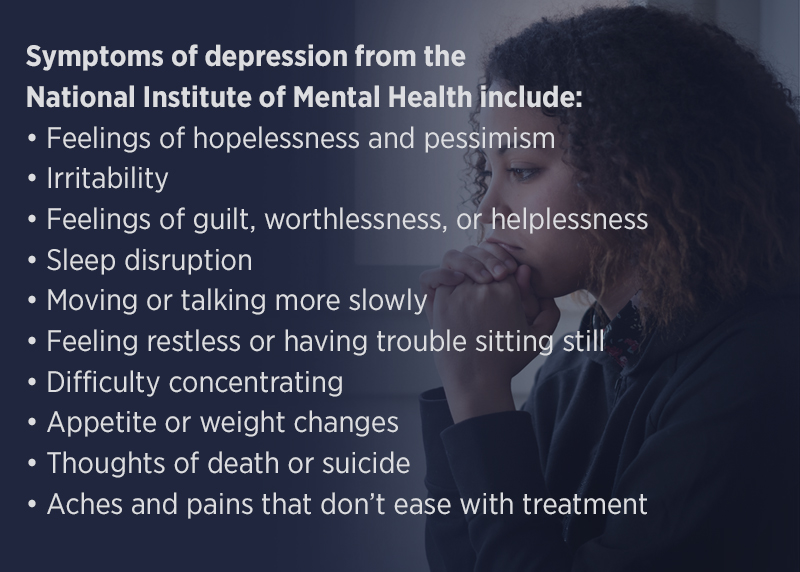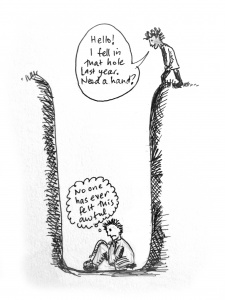
HELP! How to deal with Depression?
I remember getting a call almost a decade ago. It was late at night and a friend called me up out of the blue. He wanted to take his life that night. We talked it out, he went to sleep and felt better the next day. I am not saying that the matter is to be taken lightly but that there is power in talking it out that we cannot undermine.
In 2017, the World Health Organization (WHO) highlighted ‘Depression: Let’s Talk’ as their one year global campaign, recognizing depression as the main cause for ill health and disability worldwide.
Depression is no longer a faraway problem, but a common one, with over 300 million people suffering from it. If you know someone who is dealing with this or if you are fighting with depression, please read through and seek help.
1. Recognize that it is a health issue and not just an emotional problem
2. Identify the Signs & symptoms
There are a lot of types of depression but for easier reading, we will divide it to minor and major depression:
Unipolar Minor Depression = having 2 to 4 symptoms for 2 weeks or more*
Unipolar Major Depression = having 5 or more symptoms for 2 weeks or more*
*with at least one symptom of: depressed mood or loss of interest or pleasure (anhedonia) that is not attributed to a medical condition.

3. Seek help
Recognizing that you need help is the first step towards recovery. No matter how ‘mild’ the symptom is Talk to someone, get support. It might be someone you know or it can be over a hotline. Talking it out helps you to recognize what you are facing, bringing it to the spotlight to deal with it.
Psychotherapy
Besides friends and family, one can seek out a psychologist or a psychiatrist for group therapy or interpersonal psychotherapy. The primary goal of treatment is to alleviate depressive symptoms and improve functioning.
Addressing the cause is important to start dealing with the problem at hand. These triggers, when left unattended, will take root and bring about greater damage.
Interpersonal psychotherapy focus on four main areas that are associated with the onset or maintenance of depression:
- grief over loss (eg, death of a spouse)
- role disputes (eg, conflicts at work or home about expectations from the relationship)
- role transitions (eg, childbirth, divorce, or retirement)
- interpersonal skills deficits (pervasive problems starting and maintaining relationships, and chronically impoverished, contentious, and unfulfilling relationships).
Cognitive Behavioral Therapy (CBT) has been an effective way in helping patients cope with depression. It is a goal-oriented psychotherapy treatment that empowers individuals by identifying, understanding and changing behavioral patterns that help change the way you feel.
Know the warning signs
Depression is a major risk factor for suicide. Therefore any suicidal talk or behavior should be taken seriously and one should always watch for the warning signs:
- Talking about killing or harming one’s self
- Expressing strong feelings of hopelessness or being trapped
- An unusual preoccupation with death or dying
- Acting recklessly, as if they have a death wish (e.g. speeding through red lights)
- Calling or visiting people to say goodbye
- Getting affairs in order (giving away prized possessions, tying up loose ends)
- Saying things like “Everyone would be better off without me” or “I want out”
- A sudden switch from being extremely depressed to acting calm and happy
See a psychiatrist
If you have persistent symptoms for more than two years, major depression or warning signs such as suicidal thoughts, immediately seek professional help. You might need more than just psychotherapy, your doctor might prescribe antidepressants to help with the symptoms if need be.
4. How to help your friend with depression

Lend a listening ear.
Listen without judging, be there for them to unload. Keep up on them once in a while, it could be something as simple as sending a text message or a random act of kindness to show that they matter.
Help them seek help
If there have recurrent symptoms or if they meet the criteria/ warning signs above, encourage them to seek help. Go along with them if they are hesitant and scared. Be the light in their dark world.
“Know that you are not alone.”
Where to seek help?
https://www.befrienders.org.my/. Call the hotline if you need someone to talk to.
Download our Doc2Us app from Google Play Store or Apple Store and chat with a doctor now.
Reference:
- https://www.webmd.com/depression/guide/detecting-depression#1
- https://www.who.int/mental_health/en/
- https://www.helpguide.org/articles/depression/depression-symptoms-and-warning-signs.htm
- https://adaa.org/finding-help/treatment/therapy
- https://www.uptodate.com/contents/unipolar-depression-in-adults-assessment-and-diagnosis?search=diagnosing%20depression&source=search_result&selectedTitle=1~150&usage_type=default&display_rank=1#H105621652
- https://www.uptodate.com/contents/unipolar-minor-depression-in-adults-epidemiology-clinical-presentation-and-diagnosis?search=minor%20depression%20diagnosis&source=search_result&selectedTitle=1~150&usage_type=default&display_rank=1#H26204824
Picture reference:








